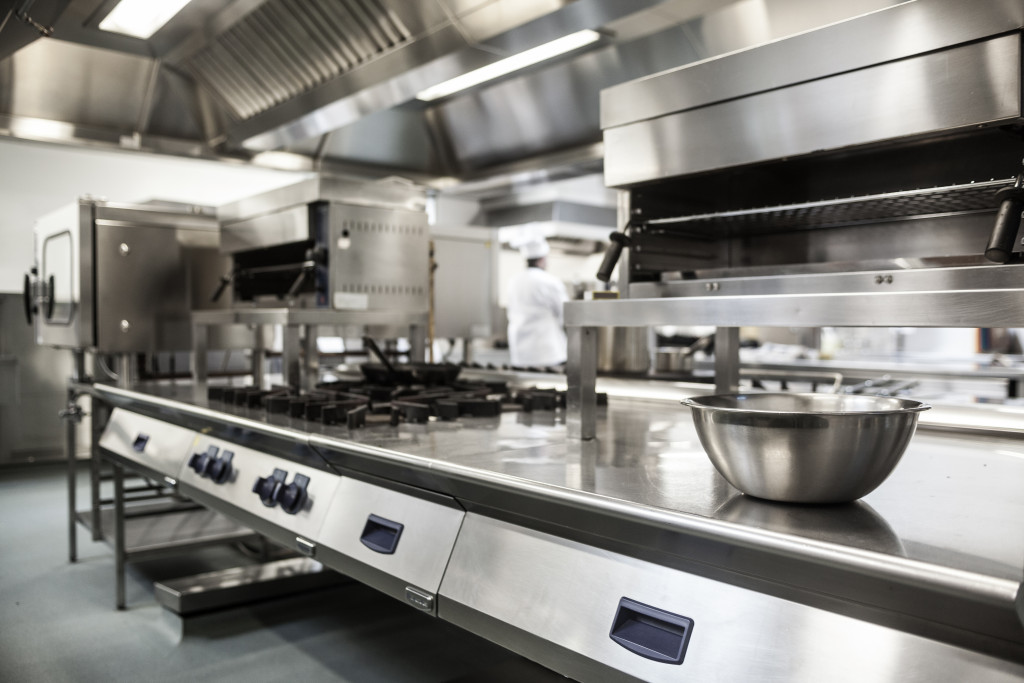Maintaining the cleanliness and safety of your commercial kitchen is essential for all the chefs, restaurateurs, and kitchen staff. But with so many moving parts, it can be easy to overlook some of the most common maintenance issues. In this article, you will learn about a few of the most common maintenance issues you should look out for in your commercial kitchen:
Grease buildup
In a commercial kitchen, grease buildup can be a persistent and pervasive problem. Preventing it requires diligent maintenance, as grease can easily accumulate on surfaces and in hard-to-reach places where airflow is limited. A kitchen should therefore be inspected regularly for areas of buildup, ensuring that corners and other crevices are regularly wiped down.
Taking preventative measures is key to reducing issues with grease; minimizing its production by using proper oil containment during cooking is essential, as well as putting the appropriate trapping devices in exhaust ducts into place. Actively managing and controlling the presence of piles of dishes or ill-placed equipment helps too.
Poor ventilation
Poor ventilation in a commercial kitchen is an especially troubling problem because it is not only dangerous for employees but will also drastically reduce the lifetime of any major appliances. Excess heat and moisture can cause damage to ovens, refrigerators, and other metal components.
If ventilation is inadequate in a given kitchen, staff may suffer temperatures that are well beyond comfortable levels due to the lack of efficient air circulation. High temperatures can result in exhaustion and illnesses related to overheating. To avoid these issues and protect personnel and equipment from harm, kitchen owners should ensure that adequate ventilation is provided through proper exhaust systems or more natural means such as open windows or vents.
Backup in the sink
No one wants to deal with a clogged sink in a commercial kitchen, especially during a busy shift. Unfortunately, it is an all too common problem. Usually, a faulty garbage disposal is to blame for a sink backup.
Dealing with this can be an incredibly frustrating experience. That’s why it’s best to leave this to professionals. Contact a garbage disposal installation service provider. They will be able to help you diagnose and fix the problem, so you can go back to focusing on your work. They will also be able to assess your current setup and offer new recommendations, such as installing a larger garbage disposal unit to help better handle the volume of waste generated in a commercial kitchen.
Leaky pipes
Leaky pipes can quickly turn into a big problem in any commercial kitchen. Water seeping from them damages the floors, walls, and fixtures and can create slip-and-fall hazards for staff and patrons alike. If a leak is detected, it’s important to act fast with proper maintenance solutions to prevent further damage.
This may include replacing joints or seals and welding together metal pipe sections, rerouting water lines to new paths, replacing corroded fixtures, or opting for more advanced solutions like specialized clamps and coatings. However, it’s always best to consult experts in the field since they can help identify if there are underlying issues that could easily be missed by others. Taking immediate action to get pipes fixed can save money in the long run – not only from avoiding structural damage but also from maintaining the optimal performance of the commercial kitchen.
Electric issues
Electric issues in commercial kitchens can be a major source of frustration and downtime. Power outages or surges can interfere with service times and cause damage to the kitchen if appliances aren’t properly protected. Regularly inspecting wiring for repairs or replacement is a key part of maintaining a safe kitchen.
Keeping outlets clean and free from dust or debris, checking smaller wiring attachments like wires behind fridges or stovetops, and keeping track of any power issues that arise are all important tasks that take precedence over other cleaning duties in a busy kitchen.
Noisy kitchen equipment

Noisy kitchen equipment is not only distracting but can also cause damage to the sensitive hearing of staff members. Many commercial kitchens must adhere to strict regulations regarding noise levels, especially in open-air spaces like food trucks or outdoor dining areas.
To combat this, owners must invest in technologies like sound insulation, acoustic panels, and other noise-reducing materials. Additionally, maintaining a regular schedule for replacing old equipment and regularly checking the function of each appliance can help reduce the risk of breakdowns that cause loud noises.
Maintenance problems are often overlooked until they become major issues that cost more time and money. But by being proactive about keeping your commercial kitchen running smoothly, you can avoid costly repairs later down the line. Follow the guide above for tips on maintaining different areas of your kitchen space. Remember that prevention is always better than cure when taking care of your business. Taking care of these maintenance items will ensure your commercial kitchen runs at peak efficiency day after day.

